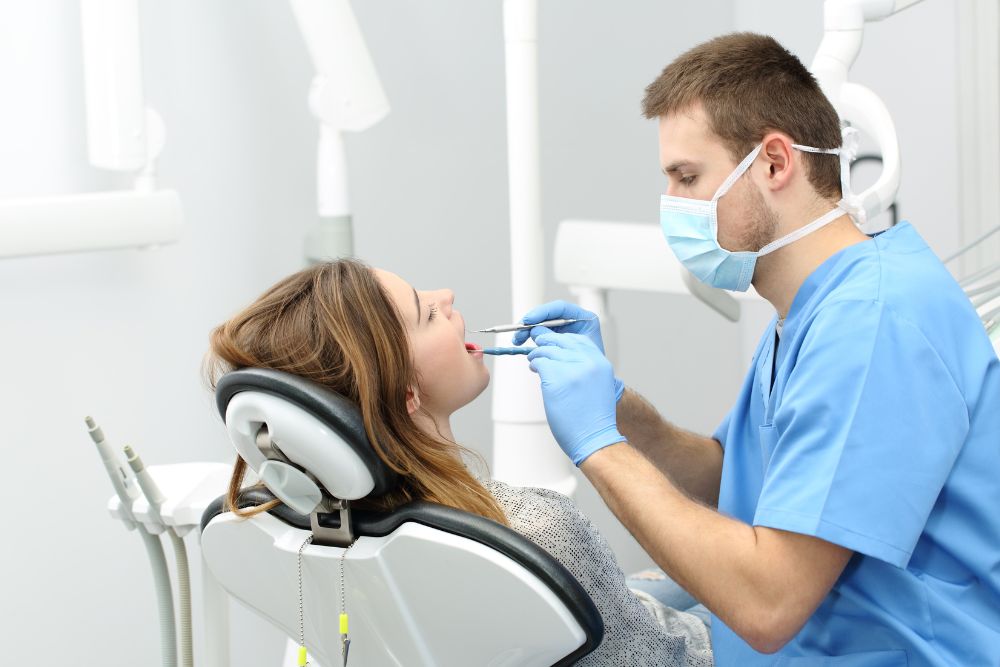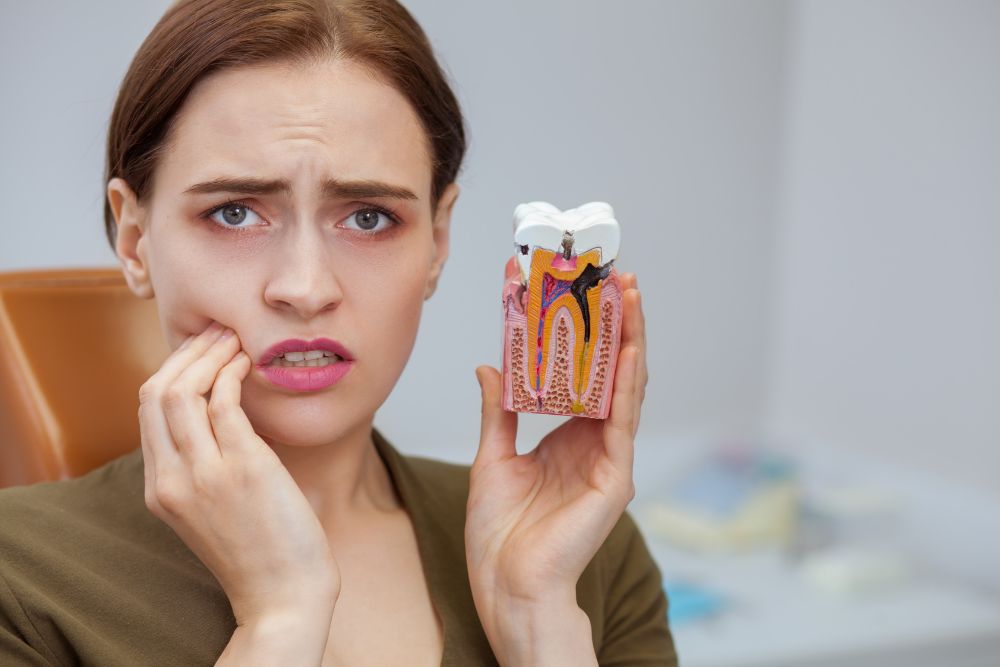Dental emergencies can happen at any time and can lead to a chipped or broken tooth. Knowing how to respond when this happens can make all the difference when it comes to saving your tooth.
At Oxford Dental, we understand that emergencies happen, which is why we offer walk-in emergency dentistry services.
But to help you better understand what to do in an emergency situation, here is the step-by-step process of handling dental emergencies when you have a broken tooth.
Assessing the Damage: What Type of Tooth Injury Do You Have?
When it comes to dental emergencies, the first step is to assess the damage. Not all tooth injuries are the same, and understanding the severity of your situation will help you make informed decisions
Here are the common types of tooth injuries:
Cracked Tooth
A cracked tooth can range from a superficial crack in the enamel to a deep fracture that extends into the root. The symptoms can vary, but pain when biting, sensitivity to hot and cold, or intermittent discomfort are common signs.
Chipped Tooth
A chipped tooth usually involves the loss of a small piece of the tooth’s enamel. It can be less painful than a cracked tooth, but it should still be addressed right away to prevent further damage or infection.
Broken Tooth
A broken tooth often implies a more severe injury, with a significant portion of the tooth missing or a deep fracture that reaches the root. This is usually a painful and urgent situation.
Immediate Steps to Take After a Tooth Chip or Break
No matter the type of tooth injury, taking immediate action can help minimize pain and prevent complications. Here’s what you should do:
- Rinse Your Mouth: The first thing you should do is rinse your mouth with warm water to remove any blood or debris. Avoid using hot or cold after, as extreme temperatures can worsen sensitivity.
- Save Any Tooth Fragments: If you have any broken tooth fragments, try to save them. They might be useful for possible restoration.
- Control Bleeding: Apply gentle pressure with sterile gauze or a clean cloth to help slow or stop any bleeding.
- Manage Your Pain: Over-the-counter pain relievers (such as acetaminophen or ibuprofen) can help reduce any pain and inflammation. Carefully follow the instructions for proper dosages.
- Temporary Protection: If there is a sharp edge on your damaged tooth, cover it with sugarless gum to protect your cheeks and tongue.
Managing Pain and Discomfort: Quick Relief Tips
Dealing with a broken tooth can be uncomfortable and painful. While these are not permanent solutions to the pain and discomfort, they can help you manage until you receive professional care:
- Cold Compress: Apply a cold compress to the outside of your cheek to help reduce swelling. This will also numb the area and provide temporary relief.
- Avoid Certain Foods: Stay away from foods that are extremely hot or cold, as well as hard foods, as they can aggravate your discomfort.
- Soft Diet: Eat soft foods that are easy to chew and won’t put additional stress on the injured tooth.
- Oral Anesthetic: You can purchase an over-the-counter oral gel with anesthetic properties to provide temporary relief by numbing the area.
Contacting a Dental Professional: How to Seek Help for Dental Emergency

Once you have taken immediate steps to manage the situation, it’s crucial that you reach out to a dental professional as soon as possible.
Dental emergencies require expert care, and delaying treatment can lead to more severe complications.
Begin by calling your dentist and explaining the situation. If they are available, they can provide guidance on the next steps and, if necessary, schedule an emergency appointment.
If your regular dentist is not available for an emergency appointment, you can always contact a clinic like Oxford Dental that provides emergency services.
Before your appointment, make sure to gather all of the information about your injury, including any saved tooth fragments, to help the dentist provide the best care.
Treatment Options for Cracked or Chipped Teeth: What to Expect
The choice of treatment for a cracked, chipped, or broken tooth depends on how damaged the tooth is, the location of the injury, and your dentist’s assessment.
Here are some of the treatment options and what to expect from each:
Dental Bonding
Dental bonding is a common dental treatment for minor cracks or chips. It involves applying a tooth-colored material (composite resin) to the damaged area, which is then shaped and hardened with a special light.
This is a quick procedure that usually doesn’t require anesthesia (unless the damage is near a sensitive area).
Dental Crowns
Dental crowns, also known as caps, are used for more extensive damage or when the structural integrity of the tooth is compromised. These are custom-made covers that encase the entire visible portion of the tooth.
This process usually requires two visits, one to prepare the tooth and take impressions of its shape and the other to fit the permanent crown. Local anesthesia is often used during the preparation of the tooth to ensure a painless procedure.
Root Canal
A root canal is a procedure that removes the damaged pulp and seals the tooth. This is necessary when the crack or chip extends into the tooth’s pulp, where the nerves and blood vessels are located.
Root canals are often performed as a separate procedure or in conjunction with other treatments, such as a dental crown. You may experience some discomfort or mild swelling for a few days after the procedure.
Tooth Extraction
In severe cases where the tooth cannot be saved, tooth extraction may be the only option.
The tooth is carefully and gently removed under local anesthesia and can be replaced with dental implants, bridges, or partial dentures.
Contact Oxford Dental for Immediate Emergency Dental Services
In times of dental emergencies, swift action is paramount.
Whether you have a cracked tooth, a chipped tooth, or any other dental issue, our experienced team is just a call away.
Your oral health matters and our commitment to your well-being is unwavering.
Contact Oxford Dental now for prompt and expert emergency dental services.
Your smile’s road to recovery begins here!

